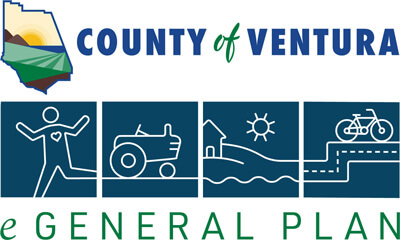The County shall collaborate with University of California Cooperative Extension to encourage and facilitate carbon farming projects, including development of demonstration projects and site-specific carbon farm plans, to guide implementation of carbon farming practices throughout the county, when feasible.
2020-2025
AG-M Research on Effects of Climate Change
The County shall research the potential effects of climate change on the county’s existing agricultural industry as well as the resulting challenges and opportunities associated with these changes. Research partners may include the California Climate and Agriculture Network (CalCAN), University of California Cooperative Extension, Ventura County Farm Bureau, and the Agricultural Commissioner’s Office. The research shall address, but may not be limited to, loss of chill hours, increased populations of or new species of pests, higher rates of evapotranspiration, and opportunities created by warmer climate to grow crops that were previously unsuitable based on historic climate conditions.
AG-N Subsidies for Resilient Crop Production
The County should encourage programs and obtain grants to seek funding to subsidize efforts to breed crops that are resilient to high heat, shade crops and installation of light reflectors, and reduce rates of tilling to promote soil health and combat increased temperatures as recommended by federal, state, and local agencies.
WR-A Monitor Water Supply and Water Demand
The County shall prepare Reports on the Water Supply and Demand outlook for the unincorporated portions of the county every five years.
AG-C County Procurement
The County shall develop a program to identify opportunities to continue to provide organic and locally grown foods into cafeteria services, the jail, Ventura County Medical Center, and other County-sponsored services and events that provide food service, to the extent feasible.
AG-D Agricultural Tourism Development Standards
The County shall revise the Non-Coastal Zoning Ordinance to include regulations and development standards for agricultural tourism while protecting both the grower and the public. Ordinance revisions may also include additional development standards for agricultural promotional uses, if necessary.
